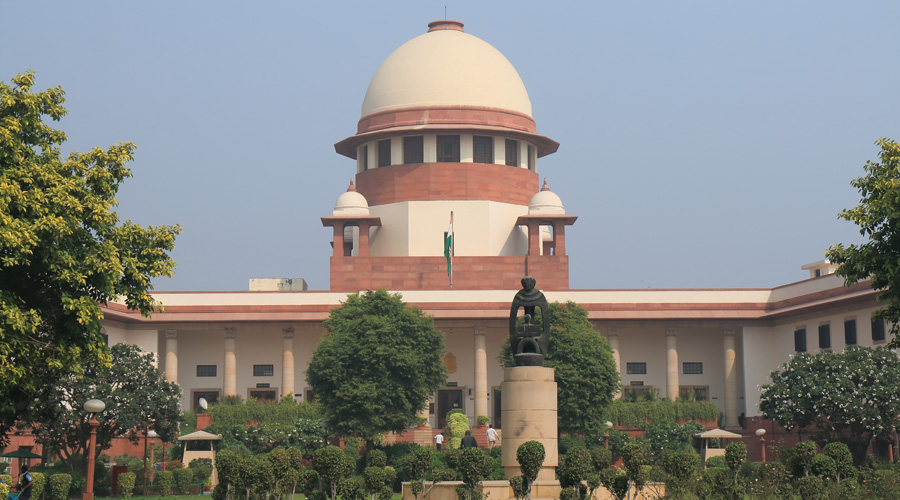The Supreme Court on Tuesday issued a slew of directions to the Centre for expediting appointment of judges besides exercising its extraordinary powers to permit appointment of retired judges as ad hoc judges of high courts to clear the massive backlog of 57 lakh cases.
The directions were passed by a special bench of Chief Justice of India S.A. Bobde and Justices Sanjay Kishan Kaul and Surya Kant while taking suo motu cognisance of 40 per cent vacancies in high courts across the country.
The development comes in the backdrop of frequent irritants between the Centre and the top court on the judiciary. While the Supreme Court and the collegium has often criticised the Centre for delaying the appointments, the government had passed the buck to the judiciary saying the recommendations for appointments were being made considerably late beyond the six-month period prescribed under the MoP (memorandum of procedure) which governs the appointment/transfer process.
Under the MoP, the appointment process to fill up a vacancy must commence six months before the actual vacancy.
Against the sanctioned strength of 1,080 judges in high courts, there are only 664 judges and 416 posts are vacant.
“The high courts are in a crisis situation. There are almost 40 per cent vacancies in the high courts, with many of the larger high courts working under 50 per cent of their sanctioned strength,” the bench said.
The directions given by the apex court follow:
⚫ The Intelligence Bureau (IB) should submit its report/ inputs within 4 to 6 weeks from the date of recommendation of the high court collegium to the central government.
⚫ It would be desirable that the central government forward the file(s)/recommendations to the Supreme Court within 8 to 12 weeks from the date of receipt of views from the state government and the report/input from the IB.
⚫ Government to thereafter proceed to make the appointment immediately on the aforesaid consideration and undoubtedly if government has any reservations on suitability or in public interest, within the same period of time it may be sent back to the Supreme Court collegium with the specific reasons for reservation recorded.
⚫ If the Supreme Court collegium after consideration of the aforesaid inputs still reiterates the recommendation(s) unanimously such appointment should be processed and appointment should be made within 3 to 4 weeks.
“We are conscious that the aforesaid exercise is collaborative in nature and we would expect promptness in this process to facilitate the larger cause of dispensation of timely justice. With the above directions, we close this proceeding,” the bench said.
Ad hoc judges
The apex court said that in view of the large vacancies in the high courts, it has decided to activate a dormant provision of the Constitution — Article 224A — for the appointment of ad hoc judges to deal with the unprecedented situation arising from the backlog of over 57 lakh cases and the consistent ratio of vacancies of almost 40 per cent.
Article 224 deals with the appointment of additional and acting judges. Its objective is take care of any temporary increase in business of the high court, or by reason of arrears of work therein. The appointment of an additional judge duly qualified to be the judge of a high court has to be for a period not exceeding two years, or as the President may specify.
The Supreme Court said on Tuesday the high court chief justices are free to appoint two to five ad hoc judges and laid down the guidelines for such appointments.










